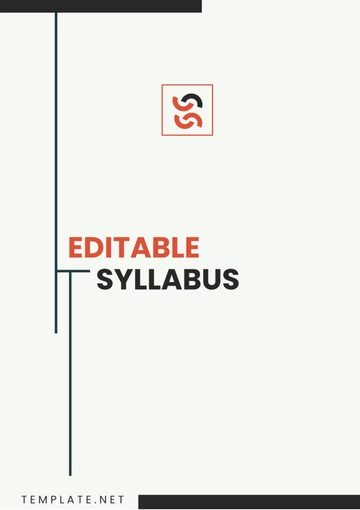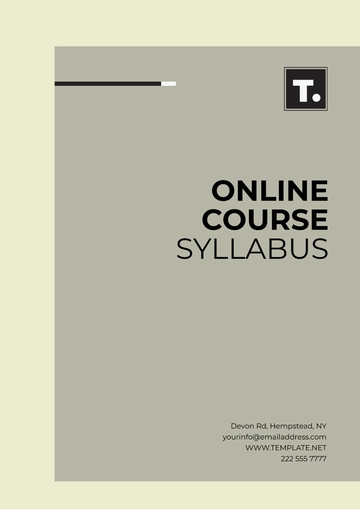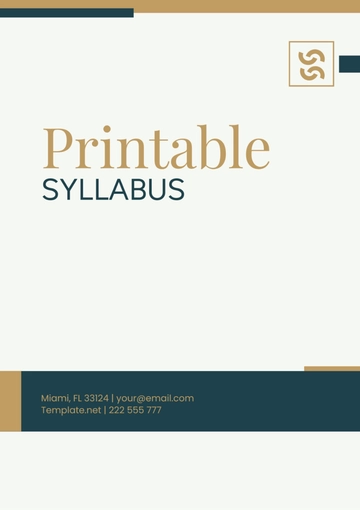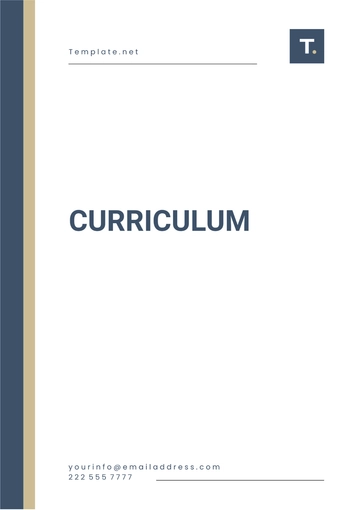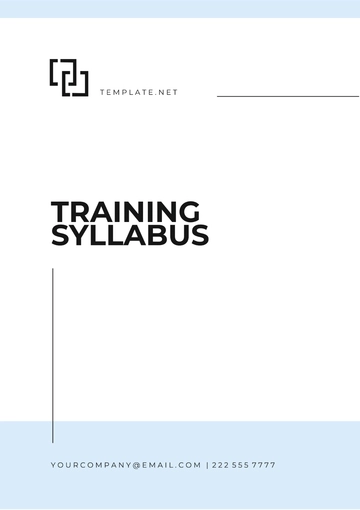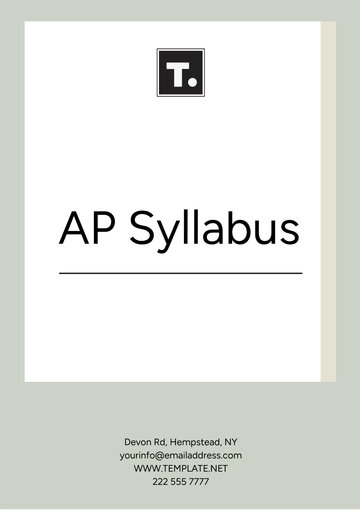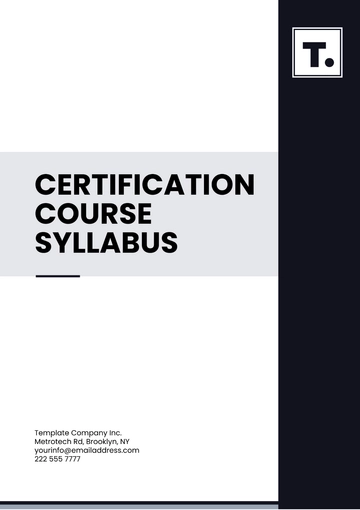Zoology Syllabus
Zoology Syllabus Course
Course Title: | [COURSE TITLE] |
Credits: | [CREDITS] |
Instructor: | [INSTRUCTOR] |
Schedule: | [SCHEDULE] |
Location: | [LOCATION] |
Textbook: | [TEXTBOOK] |
Description: | [DESCRIPTION] |
Assessments: | [ASSESSMENTS] |
Grading: | [GRADING] |
Office Hours: | [OFFICE HOURS] |
1. Course Description:
Introduction to Zoology: An in-depth exploration of animal biology and the scientific classification, origin, physiology, habitat, and behavior of various animal species.
2. Instructor Information:
Instructor: [YOUR NAME]
Email: [YOUR EMAIL]
3. Learning Objectives:
To understand the fundamental principles of zoology and the basics of animal biology
To identify and describe different animal species, their roles, and their importance in the ecosystem
To learn about animal behavior, structure, classification, and evolution
To develop critical thinking and analytical skills in zoological studies
To promote awareness of animal conservation and its impact on the world's ecosystem
4. Course Schedule:
Week | Topics | Reading Material |
|---|
1 | Introduction to Zoology | "Zoology: The Study of Animal Life" by Stephen Miller and John Harley Lecture notes on basic concepts and principles of zoology Online resources on animal classification and taxonomy
|
2 | Animal Physiology | "Animal Physiology" by Richard W. Hill, Gordon A. Wyse, and Margaret Anderson Chapters on digestion, circulation, respiration, and excretion Review articles on recent advances in animal physiology
|
3 | Ecology and Behavior | |
5. Required Reading and Materials:
"Fundamentals of Animal Biology" - Smith, John
"A Guide to Animal Habitats" - Brown, Lisa
"Animal Behavior: A Zoological Approach" - Davis, Mark
"Evolution and Animal Kingdom" - Green, Robert
Erasable markers and a notebook for note-taking and sketching
6. Assignments and Assessments:
Weekly Reading Assignments: Students are expected to read assigned chapters and materials before each class.
Class Participation: Regular and active participation in class discussions is essential.
Midterm Project: Students will conduct a small research project pertaining to a chosen animal species.
Final Exam: The cumulative final exam will assess the understanding and application of course material.
Class Presentation: Students will present their research findings towards the end of the semester.
7. Course Policy:
Attendance: Regular class attendance is mandatory. More than three unexcused absences will result in grade reduction.
Academic Integrity: Plagiarism, cheating, or any other form of academic dishonesty will not be tolerated.
Late Assignments: Assignments turned in after the due date will receive a grade deduction unless an emergency situation is proven.
Contacting the Instructor: Students are encouraged to address any issues or questions with the instructor by email or during office hours.
Respect and Inclusion: All students are expected to maintain a respectful and inclusive environment in the classroom.
8. Grading Policy:
Assessment Component | Weight |
|---|
Weekly Reading Assignments | 20% |
Class Participation | 20% |
Midterm Project | 20% |
Final Exam | 30% |
Class Presentation | 10% |
9. Disclaimer:
Please be aware and take note of the following disclaimer: The information and structure laid out within this syllabus should be viewed as flexible and not absolute. It is subject to undergo potential changes as seen fit by the instructor or the academic institution. In the event that any changes are made to the syllabus, the instructor will ensure that all students are promptly informed. This communication could either be done in person during class time, or through electronic communication like email.
Syllabus Templates @ Template.net


